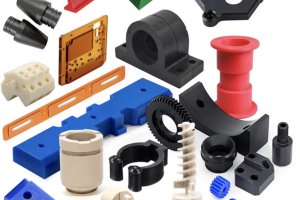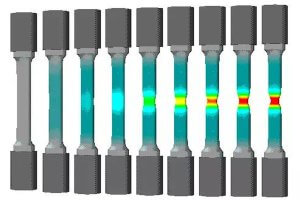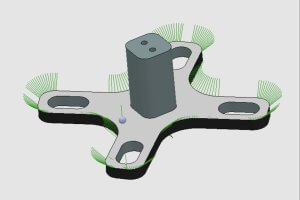When it comes to CNC machining, efficiency is key. The faster and more streamlined your workflow, the more profitable your business will be. In this article, we’ll explore some tips and tricks to improve your CNC machining workflow, from optimizing your CAD/CAM software to minimizing tool changes and reducing cycle times.
Understanding the CNC Machining Workflow
Before we dive into specific tips, let’s take a step back and review the CNC machining workflow. CNC (Computer Numerical Control) machining is a manufacturing process that uses computerized controls to automate the movement of cutting tools and machines. The process begins with a CAD (Computer-Aided Design) model, which is then converted into a CAM (Computer-Aided Manufacturing) program. This program contains all the instructions for the CNC machine to follow, including tool paths, cutting speeds, and feed rates.
Once the CAM program is generated, it is loaded onto the CNC machine, and the machining process begins. The machine uses cutting tools to remove material from a workpiece, following the instructions in the CAM program. After the machining is complete, the finished part is inspected and any necessary finishing operations (such as sanding or polishing) are performed.
Recommended Read: Mastering the Art of 5-Axis CNC Machining
Tips to Improve Your CNC Machining Workflow
Now that we have a basic understanding of the CNC machining process, let’s explore some tips to improve your workflow.
1. Optimize Your CAD/CAM Software
Your CAD/CAM software is the heart of your CNC machining operation. By optimizing your software, you can reduce programming time and minimize errors. Here are some tips to consider:
- Use software that is designed specifically for CNC machining. There are many CAD/CAM packages on the market, but not all are created equal. Look for software that is tailored to the needs of CNC machinists, with features like automatic toolpath generation, collision detection, and simulation.
- Standardize your programming process. Develop a set of best practices for programming, and make sure all programmers follow the same process. This will help reduce errors and minimize programming time.
- Use macros and templates to automate repetitive tasks. Macros and templates can save you time by automating tasks like tool changes and setting workpiece zero points.
2. Minimize Tool Changes
Tool changes can be time-consuming, especially if you have to change multiple tools for a single part. Here are some tips to minimize tool changes:
- Use multi-tool holders. Multi-tool holders allow you to hold multiple cutting tools in a single holder, reducing the need for frequent tool changes.
- Use modular tooling. Modular tooling allows you to swap out cutting heads or inserts without changing the entire tool. This can save time and reduce tool changeover.
- Combine similar operations. If you have multiple operations that require the same tool, consider combining them into a single operation. This can reduce the number of tool changes needed.
Recommended Read: How to Choose the Right CNC Machining Tools
3. Reduce Cycle Times
Cycle time is the amount of time it takes to complete a single part. By reducing cycle time, you can increase throughput and improve profitability. Here are some tips to reduce cycle time:
- Optimize cutting speeds and feeds. Cutting speeds and feeds are critical to achieving the fastest cycle times possible. Use your CAD/CAM software to optimize these settings for each tool and material.
- Minimize non-cutting time. Non-cutting time includes tasks like tool changes, workpiece repositioning, and measurement. Look for ways to reduce non-cutting time, such as using multi-tool holders or combining similar operations.
- Consider high-speed machining. High-speed machining uses advanced cutting strategies and specialized tools to achieve faster cycle times. If your parts are suitable for high-speed machining, this can be a great way to boost productivity.
4. Use Automation Where Possible
Automation can be a great way to
increase efficiency and reduce errors in your CNC machining workflow. Here are some ways to incorporate automation:
- Use robotic loading and unloading systems. These systems can automatically load and unload parts from the machine, reducing the need for manual labor.
- Use automated inspection systems. Automated inspection systems can measure parts more accurately and quickly than manual inspection, reducing the risk of errors.
- Use bar feeders. Bar feeders can automatically feed long, thin stock into the machine, reducing the need for manual handling.
Recommended Read: 7 Effective Strategies to Reduce CNC Machining Costs
5. Invest in Training and Education
Finally, investing in training and education can help improve your CNC machining workflow. Here are some tips to consider:
- Provide ongoing training for your employees. CNC machining is a complex process, and ongoing training can help your employees stay up-to-date on the latest techniques and technologies.
- Encourage employees to attend industry events and conferences. Industry events can be a great way to learn about new products, technologies, and best practices.
- Partner with suppliers and manufacturers. Many suppliers and manufacturers offer training programs for their products and services. Taking advantage of these programs can help your employees learn new skills and techniques.
Maximizing Efficiency and Profitability in Your CNC Machining Workflow
Improving your CNC machining workflow is essential for maximizing efficiency and profitability. By optimizing your CAD/CAM software, minimizing tool changes, reducing cycle times, using automation, and investing in training and education, you can streamline your process and stay ahead of the competition. Remember to stay up-to-date on the latest technologies and techniques, and don’t be afraid to experiment with new approaches. With a little creativity and hard work, you can take your CNC machining operation to the next level.
Check out more machining guide here.









